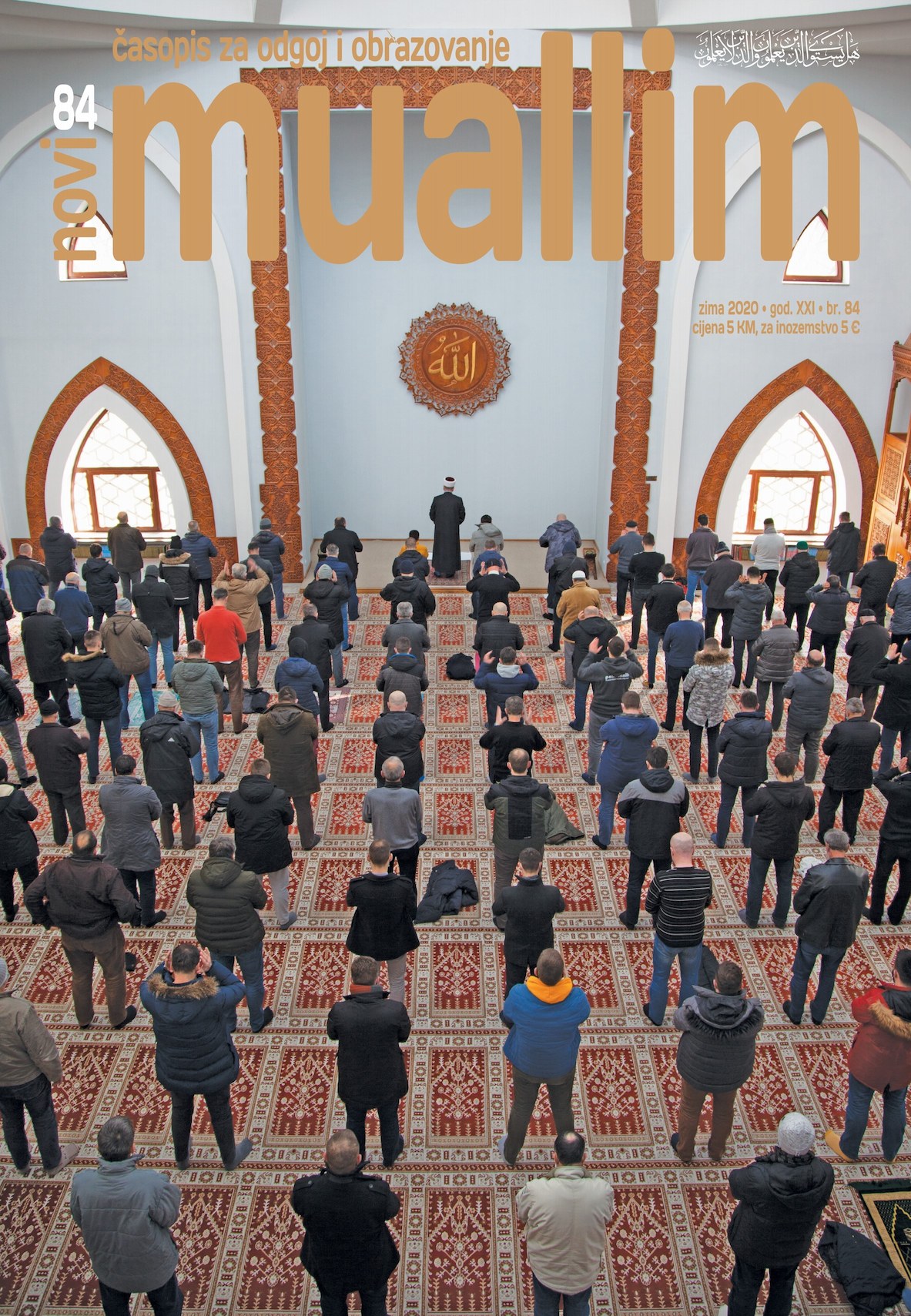ORIJENTALNA LEKSIKA U ILMIHALIMA KAO PODLOGA OSTVARENJU SPECIFIČNIH ZADATAKA MEKTEPSKE POUKE
DOI:
https://doi.org/10.26340/muallim.v21i84.1831Ključne riječi:
mektepska pouka, odgojno-obrazovni rad, orijentalna leksika, odgojni zadaci, ilmihali, arabizmi, turcizmi, persizmi, muallim, bosanski jezikSažetak
UDK 003.332.5.038:811.163.4*3]
28-1:091
Zadatak ovog rada je istražiti prisutnost orijentalne leksike u udžbenicima mektepske pouke. Nastojalo se analizirati stanje pronađene leksike s obzirom na kategorije kojima leksika pripada: arabizmi, turcizmi, persizmi; standardna (nezamjenjiva leksika), supstandardna (zamjenjiva); sakralna (vjerska), ne-sakralna (ne-vjerska) leksika; onomastika (imena ljudi i mjesta), stilogeni elementi (elementi pojačane izražajnosti jezika) i historizmi (lekseme nestale iz aktivnog jezika). Istraživanje je obuhvatalo analizu tri udžbenika shodno nivoima mektepske pouke (I, II, III) po kojima se odvija nastava od mektepske 2020/21. godine. Ovim se imalo za cilj utvrditi koliko prisutnost orijentalne leksike u navedenim udžbenicima, kao jednog od osnova za izučavanje i promovisanje vlastite kulture, može doprinijeti ostvarenju zadataka mektepske pouke usmjerenih razvijanju znanja i ljubavi ka kulturi i zajednici. S obzirom na to da su predmet analize religijski tekstovi, pretpostavljali smo veću prisutnost arabizama, jednak omjer standardne i supstandardne leksike, jednak omjer sakralne i ne-sakralne leksike, kao i dovoljno zastupljen broj leksema iz ostalih kategorija. Analiza je provedena na način da su orijentalizmi markirani, klasificirani, a zatim analizirani kroz pripadajuće kategorije. Rezultati su pokazali da su arabizmi najzastupljenije lekseme (samoznačne riječi), zatim turcizmi i mali broj persizama. Standard je uveliko preovladao nad supstandardom, kao i sakralna leksika nad onom koja to nije. Ipak, postotak standardne ne-sakralne leksike (u prosjeku 20%), kao i nivo stilogenih elemenata (oko 4%) pokazao je da je ovo vrlo dobra podloga za ostvarivanje specifičnih zadataka mektepske pouke usmjerenih na izučavanje i promovisanje vlastitih kulturnih vrijednosti. Također se došlo do spoznaje da se u udžbenicima nalazi i ona leksika koja pripada kategoriji ličnih imena, onomastike, stilogenih elemenata, kao i historizama. Analiza je otkrila manju zastupljenost turcizama koji pripadaju standardnoj ne-sakralnoj leksici. Dobiveni rezultati iz ovog istraživanja osnova su daljnjim komparativnim istraživanjima iz ove oblasti, kao i istraživanjima kompetentnosti muallima u ostvarenju specifičnih ciljeva mektepske pouke.
Downloads
Objavljeno
How to Cite
Broj časopisa
Rubrika
License
Naknada:
a. Časopis ne naplaćuje naknadu za obradu članaka (APC) i naknadu za podnošenje članaka.
Autori koji objavljuju u ovom časopisu pristaju na sljedeće uvijete:
- Autori zadržavaju autorska prava i pružaju časopisu pravo prvog objavljivanja, pri čemu će rad jednu godinu po objavljivanju biti podložan licenci Creative Commons imenovanje koja omogućuje drugima da dijele rad uz uvijet navođenja autorstva i izvornog objavljivanja u ovom časopisu.
- Autori mogu izraditi zasebne, ugovorne aranžmane za ne-ekskluzivnu distribuciju rada objavljenog u časopisu (npr. postavljanje u institucionalni repozitorij ili objavljivanje u knjizi), uz navođenje da je rad izvorno objavljen u ovom časopisu.


